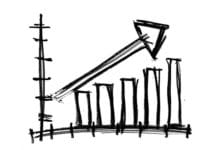Money plays a number of extremely important roles in a modern economy. The most obvious role of money is as a medium of exchange. During the early days of human civilization, the Barter system was used and later it was realized that the barter system suffers from the problem of “double coincidence of wants”. This means that a barter system will only work if two persons can be found whose disposable possessions mutually suit each other’s wants. In a country or in an economy, there may be many people wanting a particular good and there may be many people who possess those things wanted, but to allow a barter or a direct exchange of goods to happen, there has to be a double coincidence of wants. For example, to have his food, a hungry tailor will have to find a farmer who needs a shirt. This is unlikely to happen.
The second problem with a pure barter system is that it must have a rate of exchange, where each commodity is quoted in terms of every other commodity. This complication can be avoided if anyone commodity is chosen, and its ratio of exchange with each other commodity is known. Such a commodity can be used as a unit of account or a numeraire. To overcome these problems of barter, the use of a commonly accepted medium of exchange started. This medium also acted as a measure of value. Different civilizations used different commodities as the medium of exchange.
Interestingly, during World War II, cigarettes emerged as a form of commodity money in prisoner of war (POW) camps.
In some African countries, the medium of exchange was decorative metallic objects called Manillas. The Fijians used whales’ teeth for the same purpose. In some islands of Pacific, stone money is used. In some parts of India, cowry or seashells were used as the medium of exchange and measure of value. Such usages of commodities as the medium of exchange and measure of value correspond to what we presently call ‘Money’. By the 19th century, commodity money narrowed down to usages of precious metals like silver and gold. This, however, limits the amount of money in the economy as it is constrained by the availability of precious metals which are exhaustible resources. Since then we have moved to an era of paper money. The use of paper money has become widespread because it is a convenient medium of exchange, is easy to carry and store and is also a measure of value for a large number of goods and services produced in a modern economy.
The value of money stems from the fact that private individuals cannot legally create money. Only designated authorities are allowed to supply money. This limitation in the supply of money ensures that money retains its value. This also means that money can also be viewed as a store of wealth.
Therefore, to summarize, money has three broad roles in an economy; a) It is a medium of exchange, b) It is a measure of value, c) It can be used as a store of wealth.
Also read: Different Components of Money in India



